We Communicate For Happy Children
 ANECD Newsletter, Issue #6
ANECD Newsletter, Issue #6 
Your e-mail may have been automatically added from other ECD lists.
We will be happy if you stay with us. However, you may unsubscribe at your convenience.
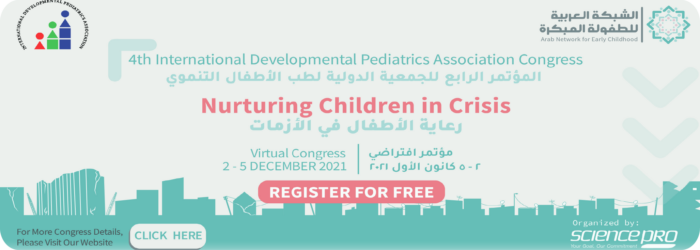
The 4th International Developmental Pediatrics Association (virtual) Conference: The Conference details and Abstracts Submission
The 4th IDPAC Congress President and ANECD’s General Coordinator, Dr. Ghassan Issa, is pleased to invite you to the 4th International Developmental Pediatrics Association (IDPA) Congress that will be convened Virtually on December 2-5,2021. The IDPA and the Arab Network for Early Childhood (ANECD) will together host this conference covering the theme ‘Nurturing Children in Crisis’ within a framework that acknowledges the importance of improving child development by supporting families and communities in crisis where children face many adversities.
With great pleasure, the IDPA Congress Team invites Pediatricians, Psychiatrists, Therapists, Mental Health professionals, Early Intervention specialists, Social workers, Self-advocates, and all Others working to support children with developmental disabilities and their families to submit Research or/and Model (Program) Abstracts for the congress presentation before 12 September 2021.
Register free for the 4th IDPA Congress, here
More on the abstract submission, here
More on the 4th IDPA Congress, here
The Crisis in Lebanon
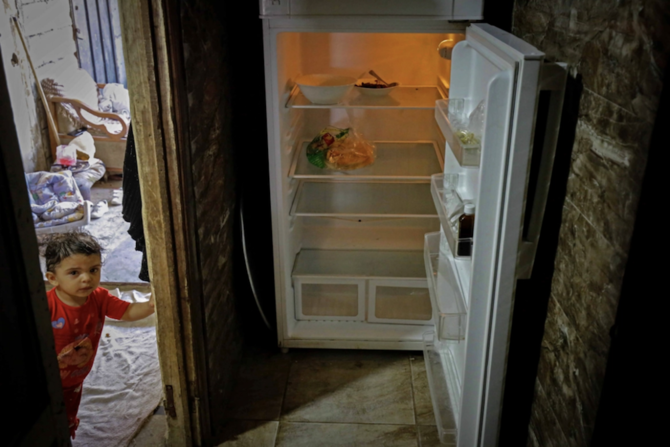
ANECD: Updates of the crisis in Lebanon and its repercussions
The Arab Network for Early Childhood (ANECD) presents a report showing the deteriorating situation in Lebanon in the past weeks, affecting the Lebanese, refugees, children, and other vulnerable groups and communities residing in the country. Lebanon has become a failed state so that the Central Bank canceled all the financial support that was provided by the state to cover the difference in fuel prices of all kinds, which led to an increase in the cost of car gasoline and diesel for power generators and later to their outage from the market, which caused the disruption of basic services in the country. The inflation rate has reached 146%, and the country has reached levels of food insecurity and famine with 60% of the population living below the poverty line after food prices increased by more than 400%. Hospitals have already announced that they will shut down automatically due to a diesel shortage, jeopardizing vaccine storage facilities, patients’ lives on dialysis, ventilators, and newborns in intensive care. Most of the country’s electricity resources are cut off even from central water pumping systems, threatening to deprive 4 million people of water.
At the Network office, we are getting two hours of electricity supply with no internet connectivity, and our team is trying hard to keep the work going from home, waiting for the full fallout of this disaster and any glimmer of hope, if any.
To read the full report, here
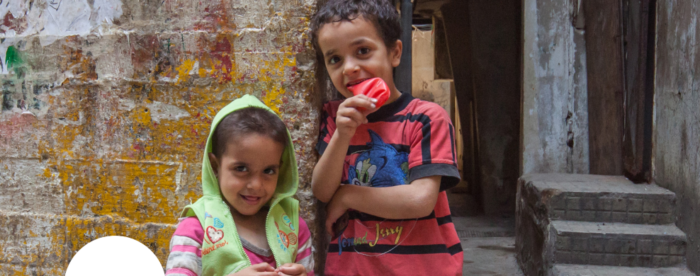
ESCWA warns: Three-quarters of Lebanon’s residents plunge into poverty
The United Nations Economic and Social Commission for Western Asia (ESCWA) issued a new policy brief on “Multidimensional Poverty in Lebanon: Painful Reality and Uncertain Prospect.” Poverty in Lebanon has drastically increased over the past year, now affecting about 74% of the total population. If broader dimensions of income are considered, such as health, education, and public services, the rate of people living in multidimensional poverty would increase to 82% of the population. The study also highlights that the share of households deprived of healthcare increased to 33%, and the share of those unable to obtain medicines has also increased to more than half.
Read the Press release, here
Read the study, here
21-00634-_multidimentional_poverty_in_lebanon_-policy_brief_-_en 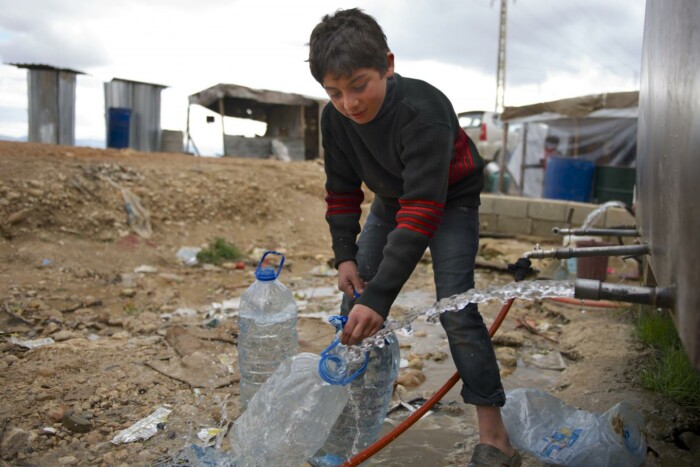
UNICEF: Lebanon in danger of losing critical access to water
UNICEF Executive Director, Henrietta Fore, stated on the 21st of August that more than 4 million people across Lebanon – predominantly vulnerable children and families – will face the prospect of critical water shortages or being completely cut off from safe water supply if urgent action is not taken. Critical services including water and sanitation, power networks, and healthcare are under huge strain. Vital facilities such as hospitals and health centers have been without access to safe water due to electricity shortages, putting lives at risk. Moreover, Fore warns of an increase in waterborne diseases in Lebanon and a surge in Covid-19 cases if people are forced to resort to unsafe and costly sources of water. That is why UNICEF is calling for the urgent restoration of the power supply – the only solution to keep water services running.
To read the whole statement, here
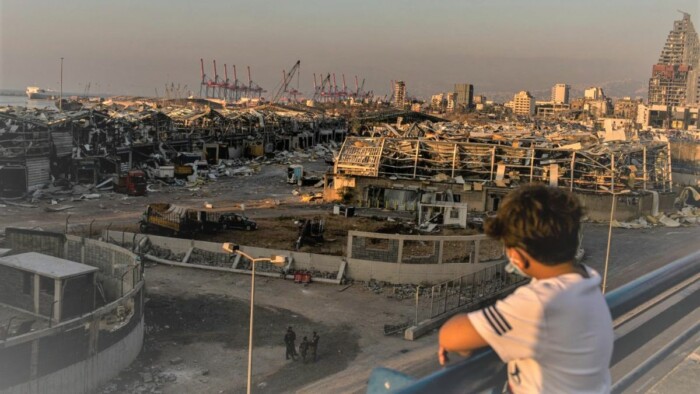
Lebanon: One year since the Beirut explosion and the three-dimensional crisis puts children and families at risk
A UNICEF survey shows that one year after the devastating explosions in Beirut the needs of affected children and families remain acute where 7 in 10 households requested basic assistance especially cash and food support. Also, one-third of the families with children under the age of 18 said at least one child in their household was still showing signs of psychological distress. Ted Chaiban, UNICEF regional director in the Middle East and North Africa, said that “Since the blast, Lebanon has been in free fall struggling with a triple crisis: economic, political and the COVID-19 pandemic. This is threatening to leave almost every child in Lebanon vulnerable and in need.”
Another UNICEF survey indicates that 60 percent of families are forced to buy food by accumulating unpaid bills or through borrowing, 15 percent of families in Lebanon have stopped educating their children, and 30 percent of children in Lebanon do not receive primary health care they need.
‘Lasting scars’ full report, here
‘Children’s future on the line’ full report, here
